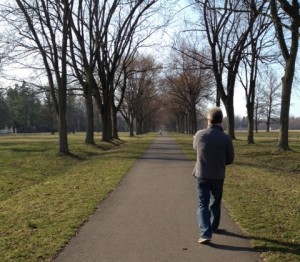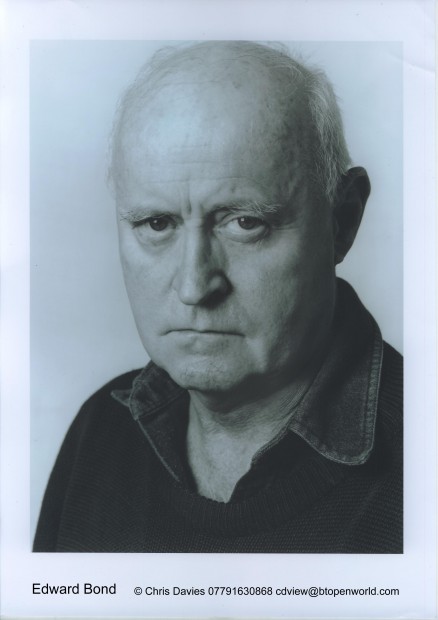Edward Bond comes to Toronto
by David Jansen
For decades I’ve been a fan of Edward Bond. His plays deeply move me. They upset and haunt me. They assault my assumptions, my orthodoxies about justice, about identity, and about the purpose of theatre. They reveal strange dystopias in familiar rooms. And they force me to consider extreme questions.
In fact, Bond describes himself as an ‘extremophile’, and in a career spanning more than 50 years and 50 plays, it is hard to think of a contemporary dramatist who has thought and written about the extremities of human behaviour with more rigour, consistency and force than Bond has done.
Injustice, violence and the sources of violence are themes that run through his entire body of work. From early plays like Saved, Lear, The Sea, and Bingo, to later work like The Woman, and Restoration, to his recent ‘Chair Plays’ (Have I None, The Under Room, and Chair), Bond exposes the social forces that distort our lives and cause violence, despair, and social madness.
Despite the cruelty and irrationality depicted in his plays, Bond is an optimist. His plays, the fact of writing them, are acts of optimism. He believes drama itself is not so much a reflection of reality but is rather the place we construct reality; it is the means by which we forge our humanity. “Drama is not a luxury of culture but its basis,” he wrote recently.
For Bond, drama offers a site where audiences are invited (and provoked) to radically engage their imagination (and reason) to create a new understanding of the self and society. Bond’s plays are political not because they address political issues, but because they address the imagination. How we imagine, the need to imagine, is at the core of his work.
Today, Bond believes that drama is experiencing its ‘third crisis.’ The first crisis occurred in classical Greek theatre as we began to explore our relationship to the gods, questioning their role and authority, essentially creating the human psyche. The second crisis, Bond suggests, happened in the Jacobean theatre, when God was finally exiled from the stage, and a new self was created, self-questioning and self-sufficient. ‘Hamlet walked out of Christ’s tomb’ is how Bond puts it. But this new concept of humanness also led to the industrial revolution. It allowed a greater rapaciousness, expressed through early capitalism, which colonized the planet, and continues to brutalize millions while happily laying waste to the earth’s ecosystem.
Which brings us to drama’s current third crisis, as Bond sees it. Modern/postmodern capitalism (via technology) has accelerated and extended its global reach and its claims on the self. Bond argues that we need to reinvent our drama so that we can reinvent ourselves. I think it’s so refreshing to be reminded of the potential significance of theatre, its importance, despite whatever we may feel now and again about its marginality.
The Edward Bond Festival, so bravely and doggedly conceived and organized by Alan Dilworth and Maev Beaty, is an invitation to our theatrical community. Through readings, symposia, through the workshop of Have I None, Ryerson’s production of The Bundle, and through the 13th Wrecking Ball, we have an opportunity to engage with Bond’s vast body of work, and to explore a different approach to theatre. Bond will be in attendance to discuss and describe his work and methodology, as will long-time Bond director Chris Cooper. It’s an opportunity to step back for a moment from our own ways of creating and thinking, to listen to some of the difficult things that Bond has to say about drama, about the world, and about what it means to become human. It should be a riveting and provocative nine days.
 David Jansen is an actor, director, a grey, superannuated student, and a bright-eyed father.
David Jansen is an actor, director, a grey, superannuated student, and a bright-eyed father.
He is thrilled to be working on Have I None with the exceptional cast of Allegra Fulton, Alex Poch-Goldin, and Christopher Stanton.



Recent Comments